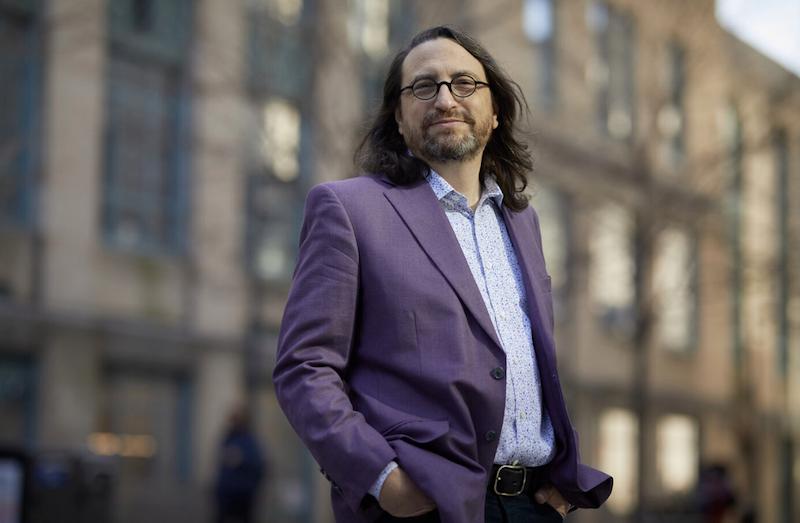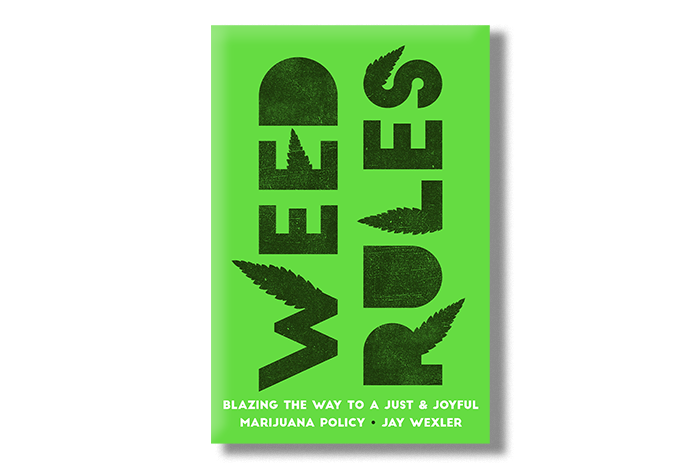Here’s the extended press release from Boston University
ports betting is an age-old vice once considered a corrupting influence and yet it’s now legal in many states, including Massachusetts, and even celebrated in TV ads featuring local and national celebrities.
Pot, on the other hand, while also legal in Massachusetts, exists in a zone of “grudging tolerance,” says Boston University School of Law Professor Jay Wexler. Sales of recreational cannabis in the Bay State and elsewhere are laden with regulations, advertising is heavily restricted, and just finding a place to indulge legally is difficult.
Wexler makes the argument for changing all that in his new book, Weed Rules (University of California Press, 2023).
While he is a cheerful cannabis consumer, the book, subtitled Blazing the Way to a Just & Joyful Marijuana Policy, has a serious aim: move society toward treating pot realistically. Wexler hopes to spark a move to reasonable regulation and sensible health policies, along with a buzz of civic satisfaction for all concerned.

“Recreational weed has been legal for what, seven years?” he says. “And we’re nowhere near where sports betting is after just a couple of months.”
One reason, of course, could be that pot is still illegal at the federal level. But recreational use has been legalized by 21 states and the District of Columbia, and decriminalized in others. Wexler along with many other observers expects the number of states to grow until something happens to change the federal laws, which will allow the banking industry to get involved, among other things. A slow, natural process of normalization may be pot’s greatest ally, Wexler says.
“I’m trying to do that by being, you know, a professor, and talking about my own use, like it’s a normal thing,” he says. “The more people talk about it, it will be less weird, less scary, and it’ll just turn into the normal thing that it really is.”
He is mindful of the science on cannabis and public health, agreeing that in many areas the jury is still out. Studies suggest that driving while high leads to more accidents, and that cannabis may not be good for youthful brains—hence his support for keeping weed off the road and for adults. And then there are health issues with smoking anything. (Of course, THC and other active ingredients of pot also come in edibles, seltzers, capsules, and other forms.)
The federal Centers for Disease Control and Prevention says that excessive alcohol consumption led to more than 140,000 deaths in the US each year between 2015–2019 and was responsible for 1 in 5 deaths among adults aged 20 to 49. Cannabis, by comparison, “is not associated with increased mortality.”
And even sports gambling has its compulsive bettors headed for bankruptcy and worse.
A lot of regulations
In a Massachusetts-focused session of his Law and Regulation of Cannabis seminar, Wexler assigns students to pore over the 105 pages of basic regulations and many more pages of guidance and ancillary material from the state’s Cannabis Control Commission. He says he wants them looking for overdone bits, like, “you’re going to have to have two people in every delivery car, so that when one person goes to the door, somebody else is in the car with the locked safe with the weed, and there’s GPS so that you can be tracked. It’s amazing how much there was.”
As with cigarettes and alcoholic beverages, cannabis advertising is also heavily regulated, both in terms of its content and where ads are allowed to appear. Ads can’t show anyone actually using the product, much less enjoying it.
These rules are supposedly crafted to protect young people. But Wexler says they are so restrictive “that you’re basically limited to text and maybe a non-offensive logo, which is so strange,” especially in light of the deluge of sports gambling ads. “I’d like to see some advertising with people being high and happy and enjoying themselves. You know, grown-ups. It’s not a big deal.”
Another tough topic for cannabis fans is employment. In many states, Wexler says, you can be fired for using cannabis—even if it’s legal where you live, even if you were off work and off-site. “And we’re not talking about nuclear plant security or train operators or whatever, but the normal, everyday person, who can be fired for using marijuana,” Wexler says. Some companies have already moved to creating sensible policies, but there is a long way to go. “You can’t be fired for having a drink over the weekend. Why should you be able to be fired for having a joint over the weekend or at night? It just makes no sense.”
You can’t be fired for having a drink over the weekend. Why should you be able to be fired for having a joint over the weekend or at night? It just makes no sense.
People in many legal-weed states may still have a problem even finding a place to light up. Laws prevent smoking it in public, landlords prevent smoking it in apartments, and states have not yet legalized public consumption businesses like cannabis cafes. This chapter in Weed Rules is titled “Weed, Weed Everywhere and Not a Place to Smoke.”
“It’s not surprising that it’s starting slow. I think we need some people to push it,” Wexler says. “And that’s kind of what the book is about. We’ve got to this first phase of tortuously deciding to make it legal for people, if they can find it and find a place to smoke it, and [if] they have a job that lets them, and et cetera, et cetera, et cetera. It’s not surprising that we didn’t go from totally illegal to everything in one step. But it is taking a while.”
Here come the multinationals?
One thing that could help normalize cannabis is a development that small businesses in the industry have long feared: the market entrance of giant corporations from the tobacco or alcohol industries.
“At the beginning, it’s risky; it becomes less risky. And, over time, the big corporations start seeing that there’s this huge amount of money and so they’re gonna come,” Wexler says. “And that’s kind of the fear of a lot of people in this space, right, is that we’re going to be dominated by Budweiser or whatever, the Coors of cannabis. And I do think it’s somewhat inevitable that that’s going to happen.”
He says that will lead to a more complicated industry that includes, as today’s beer industry does, both giants like Budweiser and Coors at one end of the spectrum and small craft producers at another. The advantage may be that the big companies will increase the pressure to normalize cannabis—and add lobbying power and money that could help ease regulation.
An even more complicated question is that of equity. In many states where pot was legalized, the law was intended to give a head start in the business to members of minorities who were disproportionately affected by the war on drugs. But African American and Latino entrepreneurs have not found an easy road. That too requires a sustained effort.

Weed Rules is copiously annotated with a thick bibliography for those who wish to delve further. While the prose is for the most part clear and direct, the pages are full of factual arguments and counterarguments—chains of logic that might be easier to parse without any of the icky sticky massaging your synapses.
Wexler will do a joint book event at Brookline Booksmith on Tuesday night with the Boston area’s Peter Grinspoon, a Harvard Medical School faculty member and Massachusetts General Hospital primary care provider who has a similar book out, Seeing Through the Smoke, focused on health and science. Peter’s father, Lester Grinspoon, was a Harvard psychiatry professor and famous marijuana advocate in the 1960s and ’70s. “Nixon hated him specifically,” Wexler says with a chuckle. “In fact there’s a strain [of cannabis] named Grinspoon.
“The super weirdest thing about that with respect to me is Peter was completely randomly my doctor when I first got to Boston, and here we are doing this event together 20 years later, so it’s a fun relationship,” Wexler says.
So, what can the average cannabis supporter do if they’re interested in supporting normalization of this legal recreational drug, other than talking about it and bringing edibles to parties?
“There’s still a lot of room for political, for popular participation, in all the legal and political processes that go into legalization, you know, in states that haven’t legalized—going in and petitioning the your cannabis board to relax advertising restrictions or writing op-eds and all the things we do for political participation,” Wexler says.
Modeling that “joyful” approach in his subtitle, Wexler takes a cheery, matter-of-fact approach to his own cannabis use.
“I have a libertarian streak when it comes to so-called ‘vice activities,’” he writes. “Maybe that’s just because most activities that I crave happen to fall into that category—there’s almost nothing I love more than drunkenly playing craps at a casino while smoking a cigar and waiting for a cannabis edible to kick in—but in any event, that’s my bias.”


















